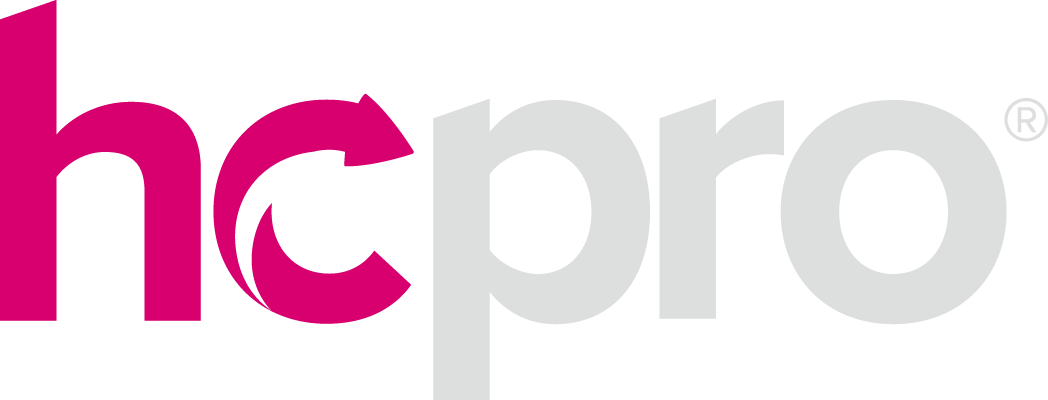2021 OSHA Compliance & Recordkeeping Virtual Master Class
January 25-26, 2021 | 12:00 p.m. to 4:00 p.m. Eastern | Virtual
Remain in compliance while learning from the comfort of your own home! We’re taking our topical master classes to the virtual space! These 2-day, 4-hour-long courses are interactive and educational and offer a unique learning experience that will help you advance your career and keep your organization in compliance with the various laws.
On September 30, 2020, the U.S. Department of Labor’s Occupational Safety and Health Administration (OSHA) published additional information to help employers apply the agency’s existing injury and illness recording and reporting requirements to the coronavirus.
With no end to COVID-19 in sight, environment, health, and safety (EHS) professionals and employers must know how to calculate reporting deadlines for in-patient hospitalizations and fatalities and clarify the meaning of the term “incident” as it relates to work-related coronavirus in-patient hospitalizations and fatalities.
By the end of this virtual training, you’ll understand safety recordkeeping essentials that can be applied to any injury or illness—and any situation.
- What is recordable with respect to COVID-19 and other ailments?
- The differences between “first aid” and “medical treatment,” how to determine whether an injury or illness is work-related, and more
- What is immediately reportable as a Severe Injury and how to deal with completion of OSHA RRI forms
- Best practices for completing the OSHA Forms 300, 301, and 300A and how to avoid becoming your company’s designated felon
- Most common OSHA injury and illness recordkeeping mistakes to avoid and tips for effective root cause incident analysis to ensure accurate reporting
- Best practices for nonmandatory records and documentation, including principles of legal privilege for safety audits, consultant recommendations, record retention, and destruction policies
- How to train remote workers and supervisors to report and record any work-related illnesses and injuries that occur “on the clock”
- Documentation related to PPE assessments, medical evaluations, and exposure monitoring results
- Latest federal OSHA policy on reporting and recording COVID cases, and how state plan states’ requirements may differ under COVID emergency standards
- OSHA’s new medical records officer position, and what the new rule means for OSHA recordkeeping audits
- OSHA’s new disclosure of employer e-data, and what that means for employer privacy and contractor prequalification
- How recordkeeping enforcement is likely to change under the Biden administration
Day 1
| January 25, 2021 | |
|---|---|
| 12:00 p.m. to 4:00 p.m. Eastern |
OSHA's Part 1904 Recordkeeping and Reporting Occupational Injuries and Illnesses Requirements, Including the Latest on OSHA’s Newly Released COVID-19 GuidanceThis will include the latest guidance on when a COVID-19 case is recordable, the differences between “first aid” and “medical treatment,” how to determine whether an injury or illness is work-related, exclusions, treatment of off-site injuries, medical removal cases, occupational illnesses and diseases, and more. |
Recordable vs. Compensable: How Injury and Illness Recordkeeping Interacts with Workers’ CompensationRight now, employers are facing an unprecedented crisis. This session will cover the key differences between the underlying purpose and scope of injury/illness recordkeeping and workers’ compensation, when an injury may be recordable but not compensable and vice versa, and more—all in the context of the ongoing crisis that every workplace is dealing with right now: COVID-19. |
|
Regulated Companies and Industries, Temporary Agencies, and Union Hiring HallsWe’ll discuss recording and reporting requirements; exemptions for small businesses; low-hazard industries; and how OSHA recording/reporting, personal injury law, and workers’ compensation law interface with your compliance obligations concerning COVID-19 and other illnesses or workplace injuries. |
|
Day 1 Questions and AnswersWe’ll wrap up the day by giving you the opportunity to get your specific questions answered by attorneys who are well-versed in the complexities of wage and hour compliance, with clear instructions for adjusting your practices in light of the very latest legal developments. |
|
Day 2
| January 26, 2021 | |
|---|---|
| 12:00 p.m. to 4:00 p.m. |
How OSHA’s Severe Injury Reporting Rule Applies to the COVID-19 CrisisLearn about the injuries that must be reported via phone call or online form to OSHA within a specified time frame, how OSHA prioritizes and categorizes the severe injury reports it receives, and when a severe injury report could trigger an on-site inspection or a Rapid Response Investigation (RRI)—all through an exploration of hypothetical fact patterns that relate to the types of COVID-19-related issues safety managers are struggling with right now concerning safety recordkeeping reporting. |
Best Practices for PPE Assessments, Medical Evaluations, and Exposure Monitoring ResultsWe’ll cover best practices around documentation relating to personal protective equipment (PPE) assessments, medical evaluations, and exposure monitoring results, including the latest guidance from OSHA on modified respirator fit testing in response to COVID-19. |
|
Essentials for Combating OSHA Recordkeeping MistakesGiven the COVID-19 crisis, many businesses are having to make a tough decision: lay off or furlough the workforce or manage a remote workforce. But, just because employees may be working remotely doesn’t mean your OSHA recordkeeping obligations go away. Now, more than ever, it’s important for organizations to train supervisors and managers, as well as their entire workforce, on how to comply with workplace safety recordkeeping requirements. This session will provide a framework to follow for proper OSHA recordkeeping training—whether you still have workers at a physical worksite or employees are distributed and working remotely due to the pandemic. |
|
Day 2 Questions and AnswersWe’ll wrap up the day by giving you the opportunity to get your specific questions answered by attorneys who are well-versed in the complexities of wage and hour compliance, with clear instructions for adjusting your practices in light of the very latest legal developments. |
|
